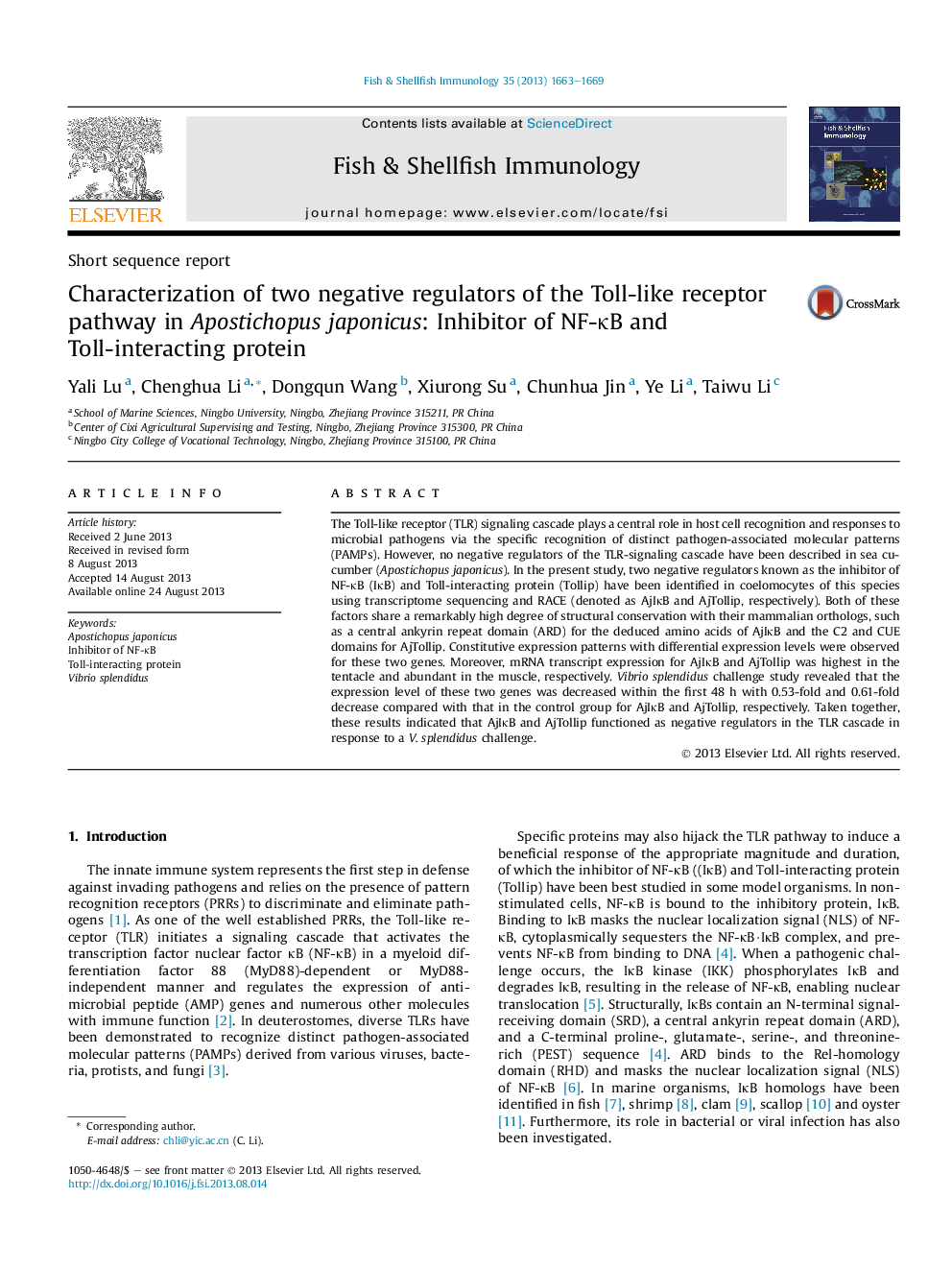| Article ID | Journal | Published Year | Pages | File Type |
|---|---|---|---|---|
| 2431740 | Fish & Shellfish Immunology | 2013 | 7 Pages |
•The full-length cDNAs of AjIκB and AjTollip from Apostichopus japonicus were cloned.•AjIκB and AjTollip mRNA transcripts were constitutively expressed in all examined tissues.•AjIκB and AjTollip could be suppressed after Vibrio splendidus challenge.•AjIκB and AjTollip were negative regulators in TLR cascade towards V. splendidus challenge.
The Toll-like receptor (TLR) signaling cascade plays a central role in host cell recognition and responses to microbial pathogens via the specific recognition of distinct pathogen-associated molecular patterns (PAMPs). However, no negative regulators of the TLR-signaling cascade have been described in sea cucumber (Apostichopus japonicus). In the present study, two negative regulators known as the inhibitor of NF-κB (IκB) and Toll-interacting protein (Tollip) have been identified in coelomocytes of this species using transcriptome sequencing and RACE (denoted as AjIκB and AjTollip, respectively). Both of these factors share a remarkably high degree of structural conservation with their mammalian orthologs, such as a central ankyrin repeat domain (ARD) for the deduced amino acids of AjIκB and the C2 and CUE domains for AjTollip. Constitutive expression patterns with differential expression levels were observed for these two genes. Moreover, mRNA transcript expression for AjIκB and AjTollip was highest in the tentacle and abundant in the muscle, respectively. Vibrio splendidus challenge study revealed that the expression level of these two genes was decreased within the first 48 h with 0.53-fold and 0.61-fold decrease compared with that in the control group for AjIκB and AjTollip, respectively. Taken together, these results indicated that AjIκB and AjTollip functioned as negative regulators in the TLR cascade in response to a V. splendidus challenge.
